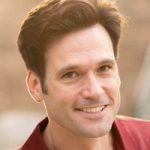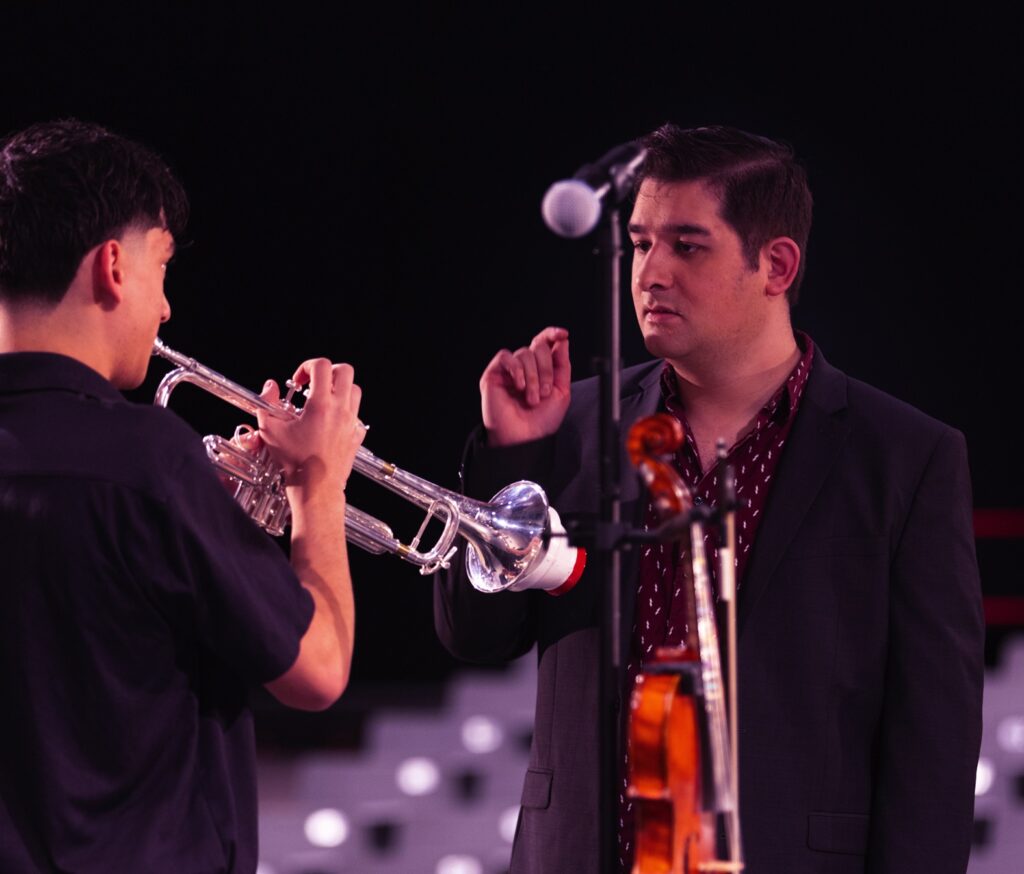Tagged Under:
My Professional Development Wish List
Most mandatory in-service sessions that I’ve attended would be great if I taught math or English, but as a music teacher, I’m left wanting. Don’t despair, find your tribe — a group of music educators — to share hacks, tips and war stories.
I’m going to say it aloud: In-service professional development is rarely built for music teachers. If I had a dollar for every “interactive-data-binder” training I’ve sat through, I might actually have a budget for clarinet reeds this year.
It’s Mandatory Institute Day and you’re herded into the cafetorium for yet another marathon session on the new district literacy curriculum. The presenter is cheerful. “How can you use these reading strategies in your classroom?” she asks, practically vibrating with enthusiasm.
Meanwhile, you’re tallying which saxophones are still missing neck straps and calculating which percussion kid is most likely to superglue their friend to the timpani stool (again). Two hours in, you realize you’ve learned exactly nothing that will help you figure out why your rehearsal room still smells like a middle school locker. And you’ve received six emails about field trip forms to sign, but sure, let’s talk about guided reading!
I don’t hate learning new things — just ask anyone who’s watched me spend 40 minutes figuring out why the third trombone sheet music always disappears. But most PD feels like watching a cooking show in a language I don’t speak, where the secret ingredient is dread. I try to nod along, but all I can think about is which clarinet kid will come in during lunch to beg for a new reed because “someone stole it.” (Someday, we will catch the elusive thief who keeps stealing pencils, reeds and other items that are useless outside of a music classroom).

We Don’t Need Any More Icebreakers
Here’s what would actually help me — sessions on “How to Not Panic When a Clarinet Breaks Mid-Concert” or “How to Say ‘No’ to One More Pep Rally Without Getting Passive-Aggressive Emails.”
I’m not saying there isn’t value in team-building, but the most useful professional development I’ve ever received? Five minutes with a veteran director showing me how to fix a snare drum with a plastic drinking straw (seriously). That’s a life skill.
It’s hard not to laugh (or cry) when you’re asked to break into groups for yet another team-building activity. Usually, it’s something like building towers out of marshmallows and spaghetti. Meanwhile, in my mind, I’m scanning the band room, trying to remember how many music stands still have all three feet and if anyone else has figured out how to get the wireless mic to work in the auditorium. I’d trade a year’s worth of icebreaker bingo for a single session on how to convince tech not to push out mandatory computer updates during concert week.
What we really need is survival training: quick repairs, how to set boundaries and how to stay sane during concert week. Sorry, but self-care is not grading scales with a scented candle lit next to you (smells like you missed a Bb — again). It’s figuring out how to make time to eat lunch at work and finish a hot cup of coffee.
One of my favorite PD moments was when another director showed me how to use a dollar bill to loosen some sticky pads. He didn’t say, “Let’s reflect on how this supports district-wide SEL goals.” He said, “Try this. It works.” You won’t find that in any breakout session, but you will find it next to the vending machine after lunch.
And those magical sessions on work-life balance? I sat in one last year where the facilitator asked everyone to write down three things they do “just for themselves” every week. I wrote “drink my first cup of coffee sitting down” and then ran out of ideas. The person next to me wrote “meditate, jujitsu, journal.” I don’t know what building he teaches in, but I want his schedule.

Admit When PD Is Useless Then Go Find the Real Answers
There’s a strange pressure, especially early on in your career, to pretend like every district initiative is life-changing. It’s not, and that’s okay. I’ve become a master of strategic tuning out when the PD isn’t built for me. Instead of color-coding data charts, I’ll spend that time swapping rehearsal hacks with the orchestra director. We’ll trade stories about emergency instrument repairs and the best ways to keep kids from playing “Seven Nation Army” during every second of downtime.
My favorite kind of PD happens in the hallway between sessions, when a choir director tells me how she convinced a group of parents not to glue rhinestones onto concert uniforms. You get more actual solutions from a 10-minute chat about what doesn’t work than three hours of watching someone explain the difference between “formative” and “summative” assessment using sock puppets.
Sometimes, professional development is just surviving concert week without losing your mind or your keys (again). The real and most helpful answers at PD sessions almost always come from your fellow teachers, not the official binder. Another example of some great PD: a 15-minute hallway conversation with a choir director about how to keep parents from “helping” too much backstage (“Mrs. Smith, there are some kids in the lobby who really need help with their lines for the musical. Would you mind helping them? Oh, what’s their role? They’re a tree.”)
If you’re stuck in a PD session that has nothing to do with what you actually do? I use the time to figure out which forms were due yesterday or mentally calculate how to stretch a $500 budget across 120 kids. Sometimes I’ll use those hours to update my “not-to-do” list — like agreeing to judge another solo and ensemble contest or volunteering to organize the pep assembly sound system again.

Request Real-World PD or Build Your Own Tribe
I used to think I was being a troublemaker by asking for PD on topics that actually mattered to my job: “How Not to Burn Out,” “Budget Hacks for the Broke” or my personal favorite, “Convincing Kids to Practice Without Bribery.” Why do I speak up? Because I realized that most administrators have no idea what music teachers actually need unless we tell them. So, I ask. Nicely.
I’ve learned it’s okay to advocate for yourself — sometimes loudly. Once, after a truly painful afternoon of “data-driven goal-setting,” I went to the PD organizer and asked if we could please get someone to talk about managing instrument repairs on a budget. She said, “That’s a great idea! Have you tried DonorsChoose?” Which is not quite what I had in mind, but at least she listened and tried to help.
Sometimes, the answer is to build your own support system. The most useful things that I’ve learned have come from other music teachers who are willing to share their scars: What they have tried, what failed and how they still found a way to laugh about it. Spoiler alert: None of them survived because of a great PowerPoint.
I’ve received more practical advice from swapping war stories in the instrument room than from any district-approved workshop. I still remember the time a friend from another building texted me, “Any way to get the smell out of a case after someone spilled milk in it?” (Answer: You can’t. Just give the kid a new case and call it a day.)
Find your people and ask questions that matter. If all else fails, wander down to the next music room and ask what nearly broke them during their second year of teaching. Odds are, they’ll have a story that makes you feel better — or at least less alone.
If your district won’t bring in someone who’s wrestled a tuba case down three flights of stairs and survived a budget cut, start your own lunch group. Meet up after school (or after rehearsal, or after you finally find your keys) and share whatever half-baked solutions that helped you through the last crisis. You’ll learn more from a lunch table full of tired music directors than from any “evidence-based framework” that shows up on a district agenda.

Closing Reflection
Music teaching is like nothing else, and the job description doesn’t fit on a slide deck. Most of the time, it feels like we’re living in a different universe from everyone else in the building. That’s not your fault, and you’re not doing it wrong. If you feel like PD is designed for every job but yours, it’s because — well — it probably is.
However, there are professional development sessions geared specifically for music educators at music education association conferences, Midwest Clinic, NAMM, NAfME and more. If you can finagle some funds to attend one of these, do it! You’ll sit through meaningful PD sessions about teaching music and still have those magical moments with other music teachers in the hallway, waiting in line for coffee, in the elevator and even in the parking lot.
Bottom line: Find the people who get it, hold onto the hacks that actually work, and don’t waste too much energy pretending you care about color-coded data binders. Your sanity — and passion for teaching — will thank you.















